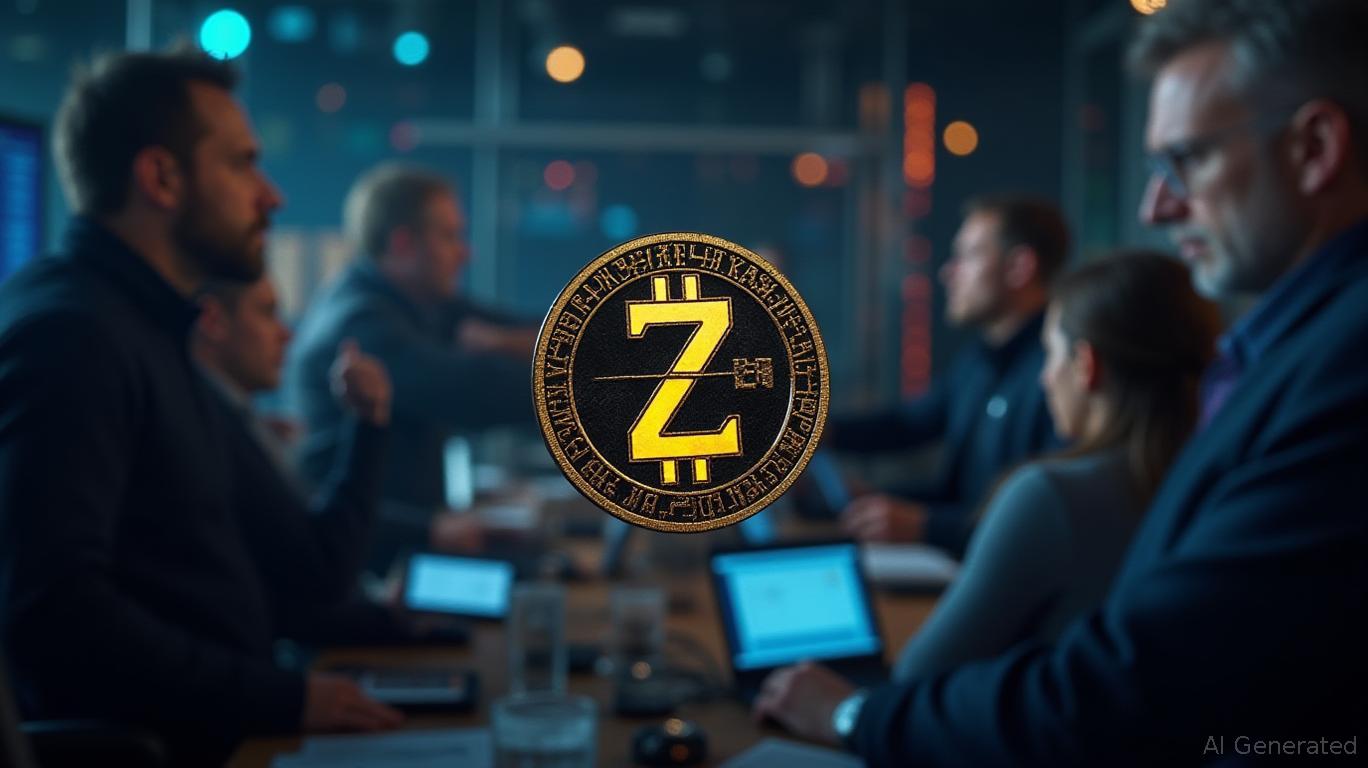Ozer’s Passing Sparks Renewed Demands for Tighter International Cryptocurrency Regulation
- Faruk Fatih Ozer, Thodex founder, was found dead in prison on Nov 1, 2025, amid suicide investigation. - He served 11,196 years for a $2.6B crypto fraud, exposing systemic risks in unregulated exchanges. - His death reignited global calls for stricter crypto oversight and transparency in regulatory frameworks. - Turkish authorities introduced new regulations, but critics highlight ongoing gaps in investor protections.
Faruk Fatih Ozer, who established and previously led the now-defunct Turkish crypto exchange Thodex, was discovered deceased in his jail cell on November 1, 2025. Authorities immediately began investigating whether the 32-year-old’s death was a suicide. Ozer had been sentenced to 11,196 years in prison for masterminding a $2.6 billion fraud, which ranks among the most significant crypto scams ever recorded, according to a
Ozer, who left school before graduating high school and gained fame as Thodex’s founder, escaped to Albania following the platform’s sudden closure in April 2021, which left 390,000 users unable to access their funds. He was apprehended in Albania in August 2022 and later extradited to Turkey, where he was found guilty of fraud, money laundering, and leading a criminal group, according to

The Thodex scandal revealed deep-rooted weaknesses in the cryptocurrency industry. Prosecutors initially assessed the losses at $24 million, but Turkish news sources and blockchain analytics firm Chainalysis later raised the estimate to $2.6 billion, as detailed by CryptoTimes. During Ozer’s trial, it was alleged that he diverted $253.71 million in crypto assets through fraudulent means, transferring the money into wallets he controlled—a detail later emphasized in Bitget’s reporting. The incident highlighted the dangers of unregulated exchanges, with critics pointing to a lack of transparency in the investigation and inconsistencies between the original and updated loss figures, as reported by Bitget.
Ozer’s passing has fueled ongoing discussions about safeguarding investors in the digital asset market. Turkish regulators have since enacted new rules, but the episode continues to serve as a warning for authorities globally. “The Thodex affair demonstrates the pressing need for comprehensive regulation to avert similar disasters,” commented an industry expert, reflecting the views of lawmakers and financial professionals cited by CryptoTimes. The probe into Ozer’s death is ongoing, with officials reviewing prison conditions and the mental health of inmates serving lengthy sentences—an issue also brought up in Bitget’s reporting.
---
Disclaimer: The content of this article solely reflects the author's opinion and does not represent the platform in any capacity. This article is not intended to serve as a reference for making investment decisions.
You may also like
BlockDAG Rockets by $435M Despite Competitor Criticism, While Shiba Inu Makes ETF Milestone
- BlockDAG's $435M presale nears 2026 listing, with founder Jason Turner countering rival attacks via transparent technical milestones. - Shiba Inu (SHIB) becomes first meme coin in U.S. ETF filing as T. Rowe Price seeks institutional exposure to altcoins. - Litecoin (LTC) rebounds to $100 amid $1.65M ETF debut, leveraging payment platform utility and low-fee microtransaction appeal. - Mantle and Aave drive DeFi growth, but BlockDAG's F1 partnerships and 10x return potential dominate pre-listing investor u

NEAR's Reduced Inflation: Sensible Adjustment or Weakening of Governance?
- NEAR Protocol slashed annual token inflation to 2.4% from 5%, bypassing a failed community vote and sparking governance debates. - The October 30 upgrade reduces new token issuance by 60 million yearly, lowers staking yields to 4.5%, and prioritizes curbing dilution. - Critics, including staking firm Chorus One, accuse the core team of undermining decentralized governance, as NEAR’s price fell 8% post-announcement. - The move mirrors strategies by Solana and Polkadot but highlights tensions between econo

"Potential for Increased Volatility as Eigen Focuses on Expanding Its Ecosystem Rather Than Token Offerings"
- Eigen Foundation clarifies EIGEN token transfers from treasury are for ecosystem grants, partnerships, and liquidity, not team unlocks or sales. - Market faces $653M+ in token unlocks (Oct-Nov 27), led by SUI ($119M) and EIGEN ($43.8M), raising volatility risks for smaller projects like GRASS and SIGN. - Analysts warn high-unlock projects face sharper price swings, contrasting Eigen's governance stability with broader market uncertainties over liquidity absorption. - Rovaren Token (RVN) introduces AI-pow

Zcash Sets New Standard for Crypto Privacy with $412 Rally and Zero-Knowledge Enhancements
- Zcash (ZEC) surged to a $412 seven-year high, driven by privacy demand, ZK upgrades, and market shifts toward zero-knowledge tech. - ZEC's $6.8B market cap now surpasses Monero and Shiba Inu, fueled by 400% October gains and 4.1M shielded tokens on Orchard protocol. - Electric Coin Co. unveiled Q4 2025 roadmap with Zashi wallet enhancements, P2SH multisig security, and Solana integrations to boost privacy usability. - Analysts highlight Zcash's optional transparency model as a compliance advantage over f
